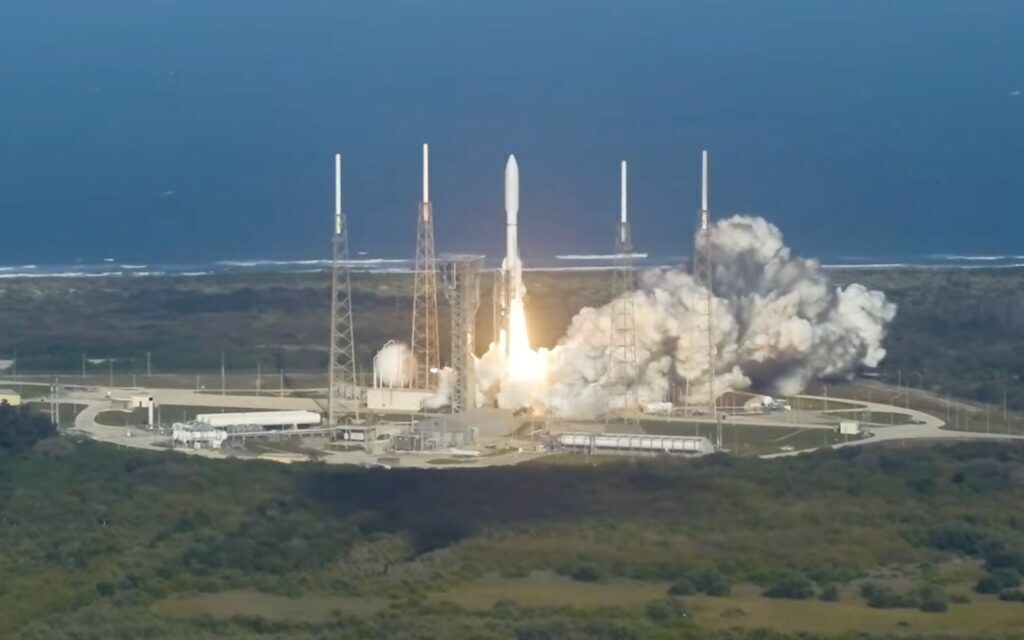If the United Launch Alliance (ULA) has to retire the Atlas V rocket, then it’s going out on a good note. The ULA has shared a brief highlight video of its outgoing launch vehicle sending the GOES-T spacecraft into orbit earlier this month.
It’s been trimmed down to a compact minute-and-thirty. You’ll burn through it before your boss spots you’re not working. But there’s loads of information packed into ninety seconds.
Atlas V: Aging titan
The video shows the whole process of getting the Atlas V to the launchpad. It doesn’t quite begin with stacking the rocket. The 2,700kg GOES-T weather satellite is already sitting atop its ride. Shuttling the rocket out of its bay, onto the launch pad, and, eventually, into the sky, takes just a few seconds. There are a few lengthy sections, particularly the wide shot of liftoff, where the power of the Altas V engines is evident.
We’re well used to the likes of SpaceX showing off its rockets in post-launch videos. There isn’t anything as spectacular as a landing rocket booster here, however. But the ULA is looking to keep its name out there. There’s a reason for that.
Atlas V was being retired anyway, but its replacement, the Vulcan Centaur, isn’t ready yet. Atlas uses a Russian-made RD-180 engine as its core. Russia has suspended all remaining RD-180 deliveries following American sanctions. The ULA, strictly speaking, doesn’t need any of these but since Blue Origin still hasn’t demonstrated a working BE-4 engine for the Alliance. Lockheed Martin and Boeing’s aerospace arms, which make up the ULA, are counting on that one to keep launches going. The current situation in Ukraine means that the ULA can’t count on falling back on the Russian RD-180 and the Atlas V if Blue Origin doesn’t deliver.




